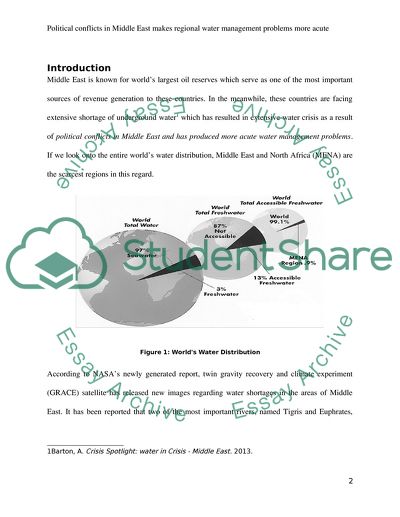Cite this document
(“Political Conflicts in the Middle East Makes the Regional Water Essay”, n.d.)
Retrieved from https://studentshare.org/environmental-studies/1624281-editing-my-essay-too-descriptive-order-900844
Retrieved from https://studentshare.org/environmental-studies/1624281-editing-my-essay-too-descriptive-order-900844
(Political Conflicts in the Middle East Makes the Regional Water Essay)
https://studentshare.org/environmental-studies/1624281-editing-my-essay-too-descriptive-order-900844.
https://studentshare.org/environmental-studies/1624281-editing-my-essay-too-descriptive-order-900844.
“Political Conflicts in the Middle East Makes the Regional Water Essay”, n.d. https://studentshare.org/environmental-studies/1624281-editing-my-essay-too-descriptive-order-900844.


